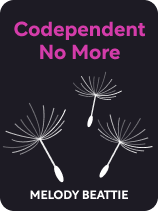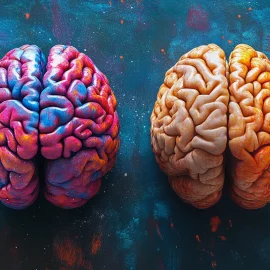

This article is an excerpt from the Shortform book guide to "Codependent No More" by Melody Beattie. Shortform has the world's best summaries and analyses of books you should be reading.
Like this article? Sign up for a free trial here .
What is a codependent person? How does somebody become codependent?
In her book Codependent No More, Melody Beattie explores what it means to be codependent and what causes codependency characteristics to develop. The good thing, though, is that—if you realize you have or are developing these negative traits—it’s not too late to reverse the behavior.
Continue below to learn all about codependency.
What Is Codependency?
What is a codependent person? According to Beattie, codependency is a stress-induced pattern of behavior that dictates how a person treats another and how she allows that other person to influence her. The codependent obsesses over the other person and seeks to control them.
(Shortform note: Defining codependency is a difficult task, even decades after Beattie’s work first brought attention to the condition. Part of this difficulty is that codependency is not technically a mental illness according to the DSM-5, which provides information for diagnosing mental illnesses. There is no single, clear definition agreed upon by experts.)
Characteristics of Codependency
We’ve synthesized Beattie’s characteristics of codependency into three critical categories:
1) Codependents put responsibility in the wrong place. They see themselves as responsible for everyone else but don’t take responsibility for themselves. (Shortform note: Taking too much responsibility for others comes from thinking yourself so independent that you have to control everything. In reality, no one controls everything. Simultaneously, the inability to take responsibility for yourself comes from low self-esteem: You base your worth on your actions, so admitting a mistake damages your esteem. If you focus on other people, though, you don’t have to worry about yourself.)
2) Codependents neglect themselves in favor of others. They focus on other people so much that they struggle to take care of themselves or let others help them. (Shortform note: Codependents neglect themselves and can’t ask for help because they fear being a burden. You can combat this fear by being open about your needs and boundaries.)
3) Codependents can’t see themselves clearly. They can’t receive help or take responsibility because they’ve repressed their feelings, needs, and personality. (Shortform note: You can avoid repression by expressing your needs, feelings, and personality instead of pushing them away.)
What Causes Codependency?
Beattie states that codependency is a reaction to prolonged and often extreme stress. This stress leads to unhealthy coping mechanisms, which become habitual over time. These habitual coping mechanisms result in “reaction mode”: You’ll react to things in both healthy and unhealthy ways, but you’ll almost never act on your own volition.
(Shortform note: When a habit forms around a stressful situation, your brain makes a connection between the situation and your stress. The next time you’re in that situation, you’ll feel stress even if the situation doesn’t call for it, and the connection will be strengthened. To stop this process, identify the habitual stress connection. If you start to feel stressed because of the connection, do something enjoyable: This alters the connection your brain makes and reduces your stress.)
Codependency is associated with substance abuse because substance abuse is a clear cause of stress. However, the source of stress can be subtle, too, Beattie explains, such as underlying family systems. All families have unspoken rules that govern how members behave and interact with one another. Families that discourage open communication are at high risk for codependency.
| Why It’s Important to Recognize Your Family System Underlying family systems like those Beattie describes are also called rules of engagement, and you learn them through trial and error. When you engage in a certain behavior and receive negative reactions, your brain prohibits the behavior in the future. If you know your family system discouraged communication, caused stress, and therefore left you at high risk of codependency, be proactive in preventing codependency by using the techniques discussed in this guide. This is important because there aren’t established solutions for healing family systems like there are for addiction, so you need to take charge of your healing. |

———End of Preview———
Like what you just read? Read the rest of the world's best book summary and analysis of Melody Beattie's "Codependent No More" at Shortform .
Here's what you'll find in our full Codependent No More summary :
- What inspired codependency 12 Step Programs around the country
- Explanations, advice, and compassion for people struggling with codependency
- How to practice detachment, self-care, and personal responsibility






